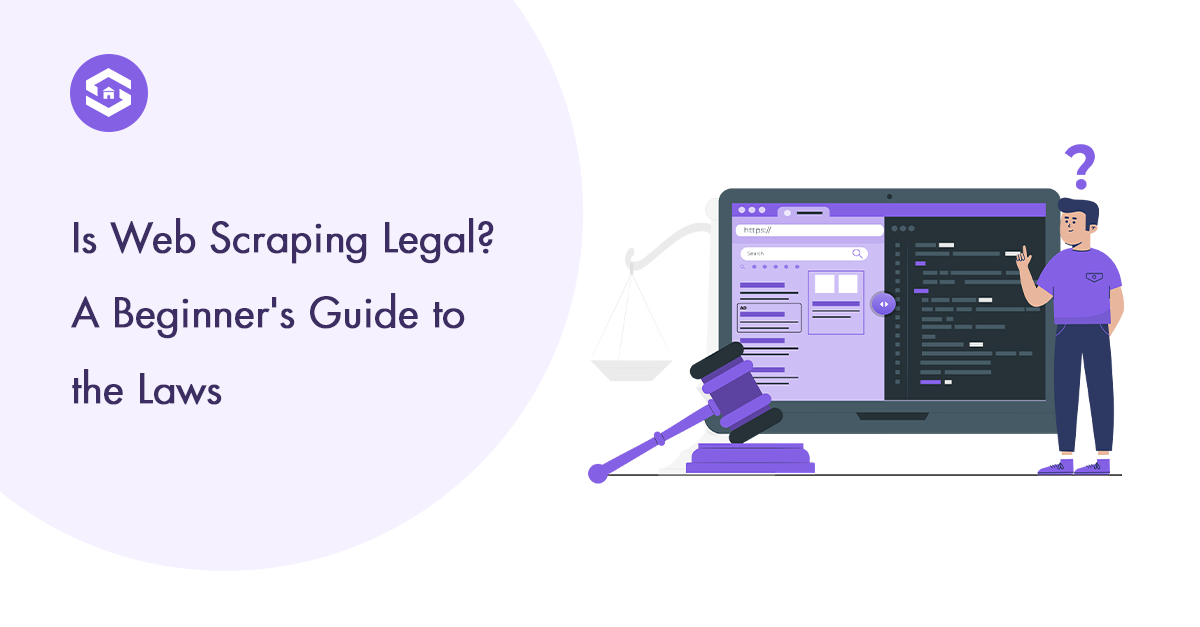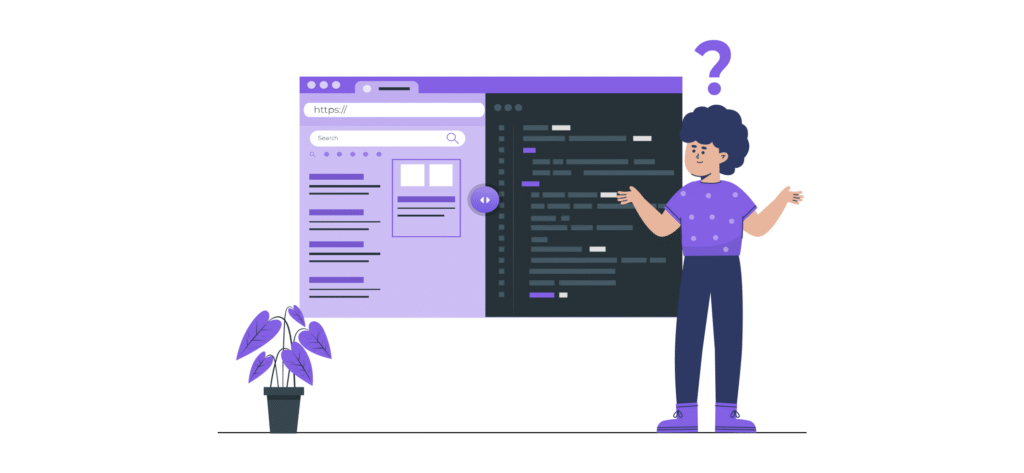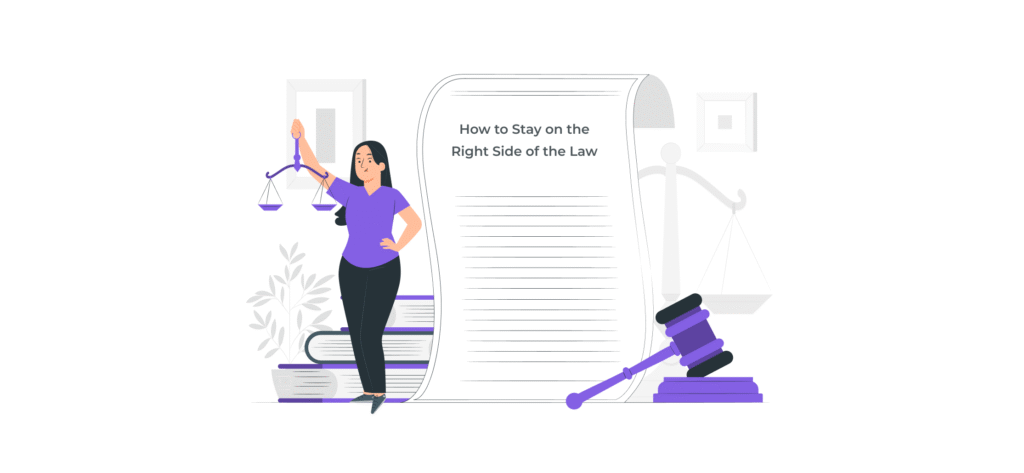Is Web Scraping Legal? Everything You Need to Understand
9 min read
9 min read

Table of Contents
Table of Contents
Web scraping has become a popular method to collect data from websites. Whether you’re collecting price information, product details, or research data, web scraping allows you to automate the process and collect huge amounts of data quickly. However, as web scraping has become more popular, there have been issues regarding its legality. In 2024, these questions are more important than ever. Learn more about Is Web Scraping Legal to understand the complexities surrounding this practice.
Web scraping is a method of extracting data from websites automatically. This technique involves a web scraper (a program or bot) that sends requests to websites, retrieves HTML information and extracts the required data. The data is frequently preserved in a systematic format, such as a spreadsheet or database, for further analysis.
People and businesses use web scraping for various purposes, including:

While web scraping is incredibly helpful, it also presents ethical and legal concerns. Websites spend considerable time and resources in building their platforms, therefore scraping large volumes of data without permission might lead to issues. Some businesses do not want their data collected without their consent, while others are more open about it. The laws governing web scraping vary by jurisdiction and are often shaped by broader legal issues such as copyright, data protection, and terms of service agreements.
Is Web Scraping Legal in 2024 depends on several factors, including how the scraping is done and what data is being collected. While there is no single answer to whether web scraping is legal or illegal, here are some important factors to consider:
Most websites include Terms of Service (ToS), which are regulations and guidelines for users who utilize their platforms. Many websites explicitly prohibit web scraping in their agreements. Scraping data from these sites without following their rules may be considered a violation.
Scraping may violate a website’s Terms of Service in some situations, which might result in legal consequences. While breaking the Terms of Service is typically considered a civil matter rather than a criminal one, companies may still sue for damages if they believe the scraping caused harm (for example, overloading servers or exploiting private data).
Another major concern is copyright law. If the data being scraped contains copyrighted material, copying it without permission may infringe the website owner’s intellectual property rights. Scraping full blog entries, news stories, or copyrighted images, for example, may be illegal if the owner has not given permission.
Collecting publicly accessible data that is not subject to copyright, including information in the public domain or factual content, is generally not considered a violation of copyright laws. Scraping public data is typically safer than copying creative or original stuff.
Laws related to data protection, such as the General Data Protection Regulation (GDPR) in the EU, set strict guidelines. Similarly, the California Consumer Privacy Act (CCPA) in the US defines how personal data can be gathered and utilised. Personal data refers to any information that can be used to identify a person, including but not limited to names, email addresses, telephone numbers, and IP addresses.
If your web scraping activities involve sites with personal data, you are required to observe the pertinent legal requirements. The GDPR, for example, requires individuals to provide explicit agreement before their data can be collected. Scraping personal data without consent may result in significant fines or other legal action.
In some cases, web scraping may be protected by the fair use concept, particularly when the data is used for educational, scientific, or noncommercial purposes. Understanding what qualifies fair usage can be challenging and varies by jurisdiction.
For example, using small portions of publicly available data for academic research may be considered fair use, whereas scraping large datasets for commercial reasons may not.
There is an important distinction between public and private data. Public data is information freely available on the web, such as stock prices, government data, or product listings on eCommerce sites. Private data, on the other hand, is protected or behind a login wall, like user profiles or email addresses.
Scraping publicly accessible data is generally legal, but scraping data that requires login credentials or is hidden behind a paywall may violate privacy laws and website terms.
Several high-profile legal cases in recent years have helped clarify the legal boundaries of web scraping:
These cases show that scraping publicly accessible data might be permissible under U.S. law, but private or copyrighted data is a different story.

Web scraping provides essential insights and data; however, it is crucial to approach the legal considerations with caution. To avoid legal pitfalls in 2024, here are some best practices:
1. Respect the Website’s Terms of Service
Always check a website’s ToS before scraping. If the site explicitly prohibits scraping, it’s wise to respect that or reach out to the website owner for permission. Ignoring ToS could lead to civil lawsuits or IP blacklisting.
2. Scrape Public Data
Focus on collecting publicly available data that can be accessed without requiring a login. Scraping data that is behind a login, paywall, or in a protected database may violate privacy laws and could be considered hacking under the CFAA.
3. Avoid Collecting Personal Data
If you must scrape personal data, make sure you comply with relevant data protection laws like GDPR and CCPA. Always seek consent where necessary, and avoid scraping sensitive or private data like credit card numbers, personal emails, or addresses.
4. Throttle Your Requests
Sending too many requests to a website in a short time can overload its servers, causing a denial of service (DoS) attack. To avoid this, use rate limiting or throttling in your web scraping code to ensure you’re not overloading the site.
5. Use Ethical Web Scraping Tools
There are many tools available for web scraping, but some are designed to circumvent protections like CAPTCHAs or login walls. Utilize ethical web scraping tools that adhere to established guidelines, and refrain from extracting data that is not publicly accessible.
6. Consult a Lawyer
If you’re scraping a large volume of data or operating in a legally grey area, it’s best to consult with a lawyer who specializes in intellectual property or data privacy law.
With more websites developing scraping defences and more data privacy regulations emerging, the future of web scraping will continue to evolve. Some possible trends for 2024 and beyond include:
Laws like GDPR and CCPA may inspire other countries to implement their regulations. Businesses will need to stay updated on the latest data privacy laws and adapt their scraping practices accordingly.
More websites are likely to offer APIs (Application Programming Interfaces) that allow users to access data without scraping. APIs provide structured access to data in a way that complies with the website’s terms, making them a legal and reliable alternative to scraping.
As web technologies advance, so will the tools used for web scraping. AI-based web scraping tools may become more common, allowing for more efficient and intelligent data extraction.
As more cases related to web scraping make their way through the courts, the legal boundaries will become clearer. We may see more regulations that address specific issues related to web scraping and data collection.
Web scraping remains a valuable tool in 2024, but its legality largely depends on how and where it’s used. While scraping public data from websites that don’t prohibit it is generally considered legal, scraping private, copyrighted, or personal data can lead to serious legal consequences. Always respect a website’s Terms of Service, be mindful of data protection laws, and use ethical tools to scrape data responsibly.
By following the rules and understanding the legal landscape, you can leverage web scraping effectively and safely in 2024, staying within the boundaries of the law while collecting the data you need.
Yes, laws such as the Computer Fraud and Abuse Act (CFAA) in the U.S. regulate unauthorized access to computer systems. Additionally, other laws may apply depending on the type of data being scraped, such as data privacy laws.
Not necessarily. While you can scrape publicly available data, many websites have terms of service that explicitly prohibit scraping. Always check the site’s policies before scraping.
Scraping social media platforms can be legal, but it often depends on the platform’s terms of service. Many platforms have strict policies against scraping their data.
Publicly available data, such as product information, news articles, or publicly listed data, is generally safe to scrape. However, always check for any usage restrictions.
Yes, ethical considerations include respecting the website’s terms of service, avoiding overloading servers with excessive requests, and not scraping sensitive or personal data.